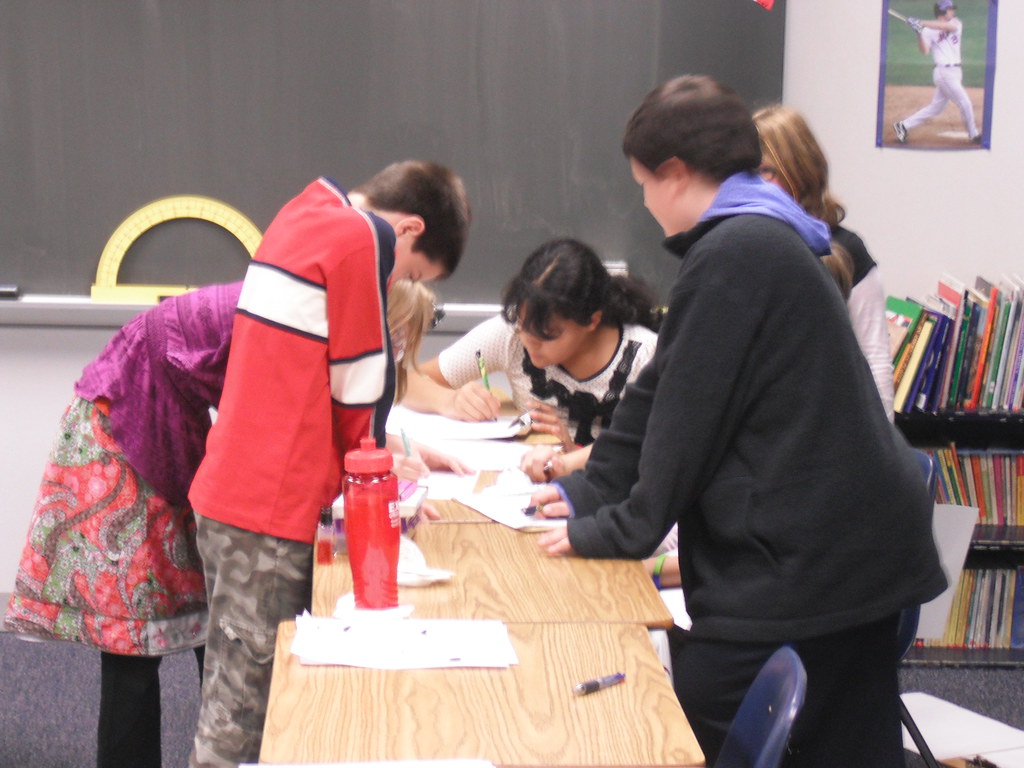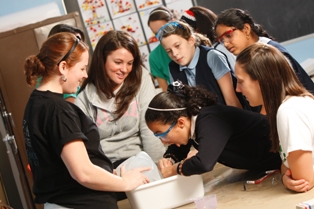Friday's Five is a feature every week where I pick a new topic and list five items that I think fit best. Then I ask you to share your thoughts in the comment section. For an archive of past topics, check the Friday's Five Page.
First of all, let me start by wishing each of you the happiest of holiday seasons. I'm truly appreciative to all of you who have taught me so much over the past year by commenting and discussing blog topics on different social networking sites.
Every year parents of school age children struggle to come up with a great gift for their children's teacher. I know this for two reasons. First, I have two school age children and have experienced this first hand. Second, I have a collection of cheesy holiday mugs that proves it. In order to help out those looking to give the perfect gift to their child's teachers, here are five recommendations:
Now it's your turn. If you are a teacher, what are some of the best gifts you have gotten? How about the worst? (I once opened a box in front of my class that contained 2 bottles of champagne. That was awkward.) Do you have any other advice to give? If you are a parent, what are some gifts that you have given your kids' teachers? Please share with us by leaving a comment below, and share the post with others on Facebook, Google+, Twitter, and Plurk so that we can get their input as well.
First of all, let me start by wishing each of you the happiest of holiday seasons. I'm truly appreciative to all of you who have taught me so much over the past year by commenting and discussing blog topics on different social networking sites.
 |
| Flickr/dodelinedesign |
- If you wouldn't want it yourself, neither does your child's teacher. Before buying that ugly mug or the tie made out of plastic at the dollar store, ask yourself, "What would I do with this if I had it?" If you only want to spend a buck or two, scratch off lottery tickets don't take up shelf space in my cupboard and won't melt in the dryer.
- You (pretty much) can't go wrong with gift cards. Starbucks, Amazon, Dunkin Donuts - all good. Victoria's Secret - probably not a good idea. Opening that in class would make for a very awkward moment.
- If you know the teacher well, try and personalize the gift a bit. For me, anything with Mickey ears and/or a Mets logo makes me smile (except for a plastic tie - I still can't do much with that). If you know the teacher enjoys cooking, a nice bottle of olive oil would be a good idea. If they are a photographer, they might appreciate a new lint-free lens cloth. For a gardener, a new pair of gloves might be good. Giving a personalized gift tells a teacher that you appreciate them as a person as well as a teacher. That's nice for us.
- Try and stay away from edible gifts. It's not that we don't like chocolate, cookies, and candy, but this time of year is already brutal on our waistlines. Teaching is not exactly a physically active profession (despite the way I tend to flail around with my arms when I'm excited about what I'm teaching). If you are determined to give something that can be consumed, a nice quality tea or coffee is a better option. Neither has any calories.
- The best gift is a hand written card, note, or letter from your child. It costs nothing, and we love it. This year I got many gifts from students, but the one that gave me the biggest smile was a card from a student with a hand drawn picture and this message:
Dear Mr. Soskil,
Thank you for being my teacher this year. You help me when I'm confused, make me laugh, and make learning fun. I hope you enjoy your break.
Love, StudentIt doesn't get any better than that.
Now it's your turn. If you are a teacher, what are some of the best gifts you have gotten? How about the worst? (I once opened a box in front of my class that contained 2 bottles of champagne. That was awkward.) Do you have any other advice to give? If you are a parent, what are some gifts that you have given your kids' teachers? Please share with us by leaving a comment below, and share the post with others on Facebook, Google+, Twitter, and Plurk so that we can get their input as well.























